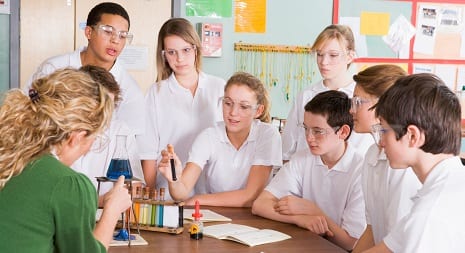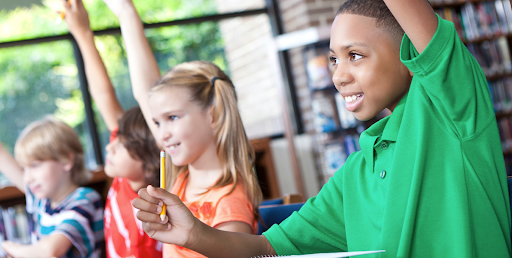
Students and teens are more involved in the real world today than ever before. They not only know what’s going on in politics, religion, and social issues, but they care about those things and want to make genuine and valuable connections with real-world events and issues. It is important for students to be encouraged to make these connections and delve further into current events and how they apply to and will affect the lives of our students.
Current events can integrate a variety of subjects that students learn about in school, from literature to social studies to science and more. Often times, current events will fall into several categories that students may be learning about at school, giving students excellent opportunities to make connections, learn more, and spark more interest in school subjects.
Making Connections Is Key
People learn best when the content they’re interacting with can be applied directly to their lives. It’s not only about engaging activities and interactive lessons, but making real-world connections can help make lessons more relevant and can make students care and focus significantly more about what they’re learning. Using current events in the classroom helps students make connections, first and foremost.
They connect the event to themselves: How does this affect me? What does this mean for me and will my life change because of it? How do I feel about it? What more do I need to know to come to a conclusion about this event?
They connect the event to others: Will this impact my family, friends, or those in my community? How will this change our present-day and our future? Is there something I can do to help those affected by this event?
They connect the event to the rest of the world: What kind of national or international impact will this have? How do I feel about what might change in the world based on this?
Current events can be taught in a variety of classes in both middle and high school. With STEM on the rise and science at the forefront of the world’s technological advances and recent news, it’s easy to integrate current events into science classrooms to spark an interest in science amongst all of your students.
Space
Students of all ages are fascinated by space, space travel, and the world beyond our planet. NASA frequently publishes new information and pictures of things they’ve discovered or observed in space, and all space news offers opportunities for current events and science education. Students can learn about the history of NASA and the US space program, explore other countries’ contributions to the space race, and learn about the science behind the amazing findings in outer space.
Medicine & Health
There is a lot of talk nowadays about medicine, healthcare policies, and more. From viral outbreaks to the vaccination debate to the healthiest way to eat, there are always current events in the news that deal with medicine and health. Encourage students to do thorough research and discover their own opinions and stances on important medical and health-related topics. This is also a good time to teach students about media bias and considering the source when doing research.
Human Sciences
Things like psychology, sociology, anthropology, and archaeology are often already fascinating to students, and using current events in these fields will only encourage the interest. Students can use new studies published in these fields to do their own research studies, or they can dig deeper into the history of recently published research. Students may also enjoy exploring social issues that fall into this category.
Life Science
Biology and life sciences are often top science classes when it comes to students’ favorites. Current events in this field may include things in the categories of animals, plants, ecosystems, genetics, paleontology, neuroscience, and more. Life science current events may include new publications based on new studies, or they may include information from millions of years ago that was just recently uncovered.
No matter what field of science you teach or your students are interested in, current events are a great way to help them explore scientific concepts in a whole new way. TCI’s curriculum programs are all about engaging the students and providing them with plenty of interactive lessons to peak their interest and foster a love of learning.


